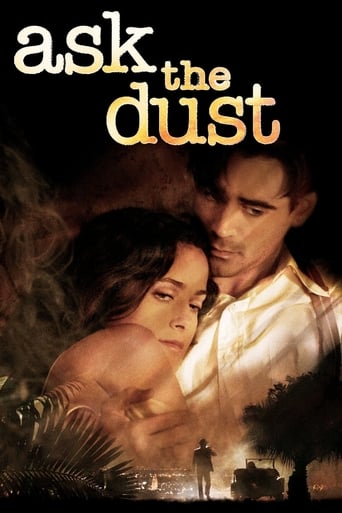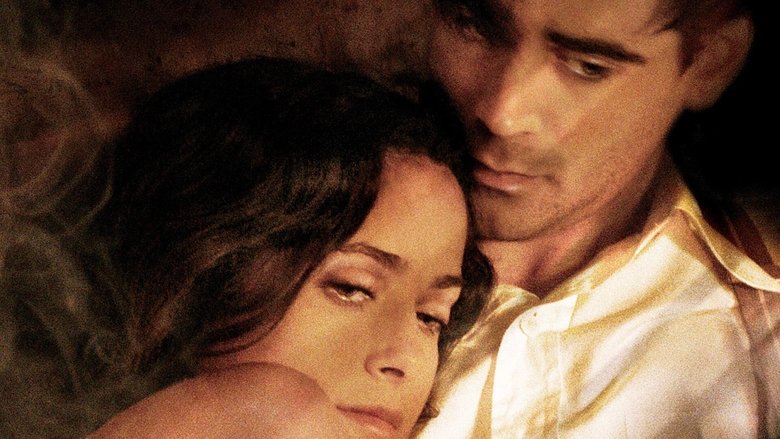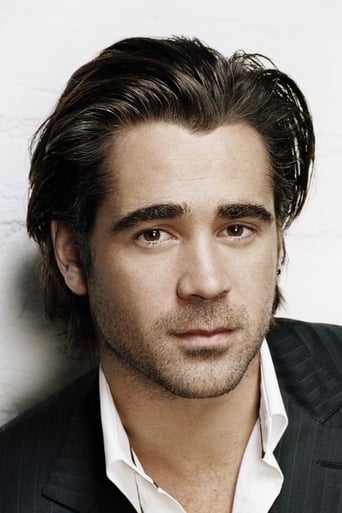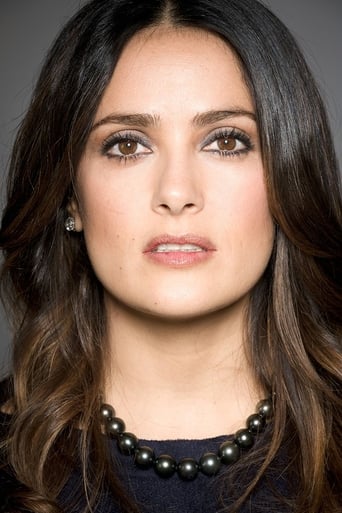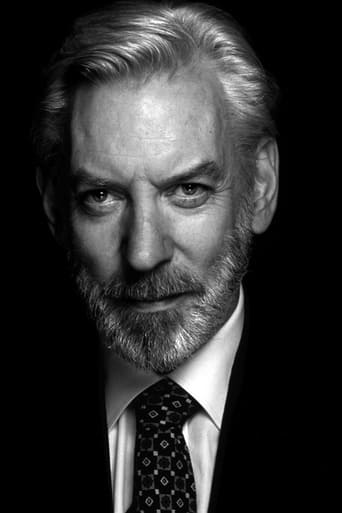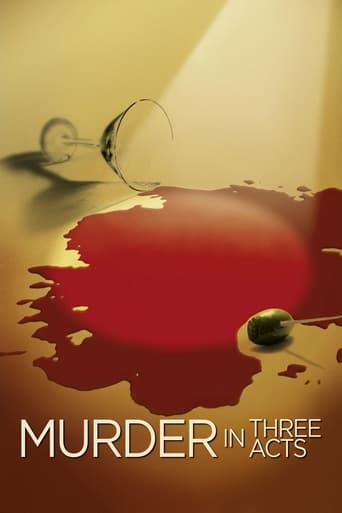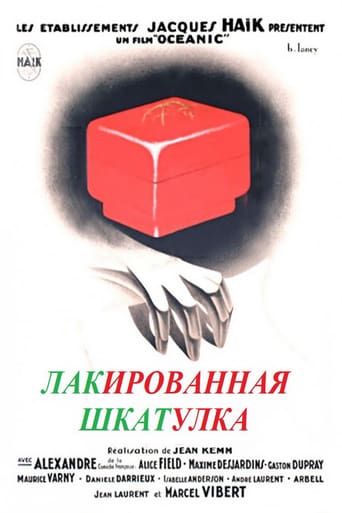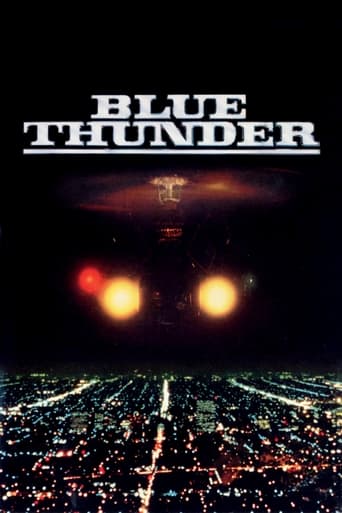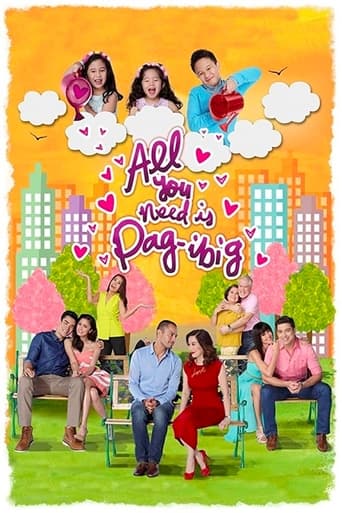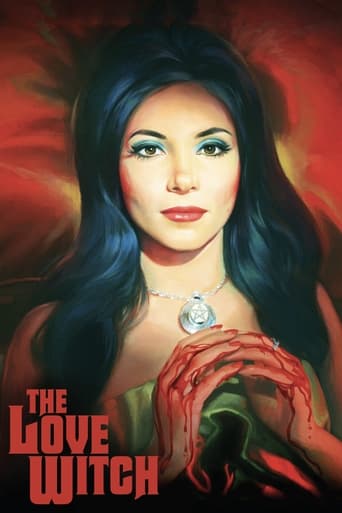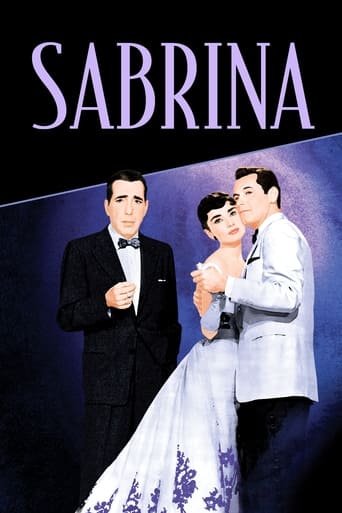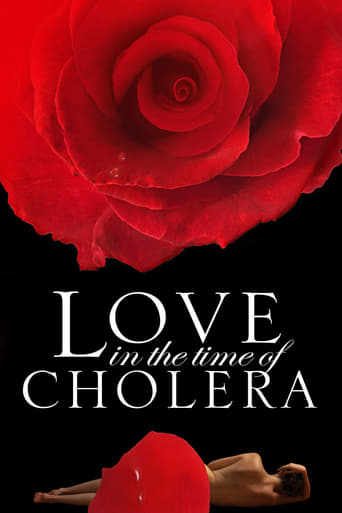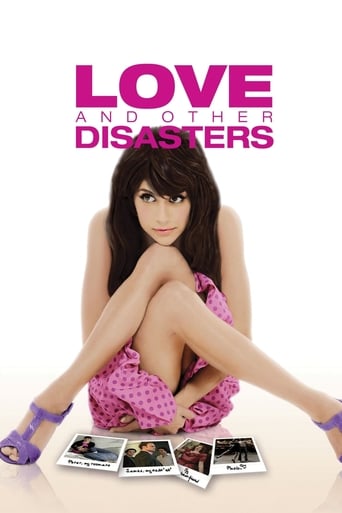Ask the Dust (2006)
Mexican beauty Camilla hopes to rise above her station by marrying a wealthy American. That is complicated by meeting Arturo Bandini, a first-generation Italian hoping to land a writing career and a blue-eyed blonde on his arm.
Watch Trailer
Cast


Similar titles
Reviews
"There is nothing to writing. All you do is sit down at a typewriter and bleed." - Ernest Hemingway1939. John Fante writes "Ask the Dust", the tale of a young man embarking on a literary career. Years later a young Robert Towne stumbles upon and voraciously devours Fante's novels, most of which attempt to paint a portrait of early 20th century Los Angeles. Decades pass. Towne embarks on his own literary career. He scores big with his screenplay for Roman Polanski's "Chinatown", a LA set noir influenced and flavoured by Fante. Towne and Fante personally meet in the 1970s. Fante dies in 1983. Two decades later Towne adapts "Ask the Dust" for the screen.Those looking for a faithful adaptation of Fante's novel will be disappointed. Towne has been sculpted "Ask the Dusk" into a deliberate, five-way romance: a distillation of Towne's long-time love for Fante, Towne's adoration of noir (and its assorted signs, trinkets and decor), Towne and Fante's love for early Los Angeles (its history, its characters, locales and heartbeat), Towne's idealisation of the Romantic image of the struggling artist, and the in-film love affair between an artist (played by Colin Farrell) and a Mexican waitress (Salma Hayek).The film can't touch Nicholas Ray's "In A Lonely Place", but to those attuned to Towne's very specific yearnings it's a very good film. Towne's no visualist, but he's a good enough writer to capture the essence of a noirish LA, with its flapping curtains, decrepit apartments, barflies, lonely hearts, drunks, scroungers, con-men, palm trees and sun-baked pavements. It's a nostalgia rush, all of which is married to an idealised, heavily romanticised portrait of a struggling artist – super good looking of course – who spends his time bedding lush Mexican women (a bosomy Salma Hayek) or sitting valiantly at a typewriter, pounding prose on page while chiaroscuro lighting bathes his body. The most interesting thing about the film, though, is its narrative arc. Farrell, who plays our budding artist (a surrogate for both Towne and Fante), has a massive insecurity complex and hates himself because he's Italian. Of course many burgeoning artists develop their artistic talents as a means of assuaging personal issues (alienation, rootlessness, self esteem problems etc). Art them becomes a means of reconnection; the product of the outsider looking inwards. The marginality of the artist then often results in the artist developing, as a sort of self-defence mechanism, a sense of superiority or inflated ego ("I hate them for making me an outsider", "I want to be with them", "I am too good to be with them", "I'm a great artist", "superior", "going places", "don't need them", "so confused!" etc). As the artist must put him or herself far out on the line, and often stand alone, such an inflation – or an almost bipolar flip-flop from feelings of unworthiness to massive self-exaltation – then becomes all that keeps her or him persevering. Now the Farrell character, because he is supremely self-loathing, begins to lash out at anyone and anything that reminds him of his own lowliness. One of his targets is Salma Hayek's character (too beautiful for such a role), a poor Mexican waitress. She reminds him of that which he wishes to escape. By the film's end, however, Farrell drops his hate, his aloofness, and begins to identify with others, empathise and speak up for them. Being a writer then becomes not a mark of status, but a duty. This tension itself increasingly obsessed Fante, his books ostensibly revolving around arrogant characters seeking independence, fame and success, while actually serving as a vehicle to introduce readers to a city, its inhabitants and their plights. In the film, Farrell's re-connection with the marginalised - the very subjects of his future art - is symbolised as a series of romantic or sexual encounters with physically deformed women and society's dregs. The film is not about "immigration", "racism" and "poverty", as some claim, but something more generalised: artists or spectators forging empathic connections with their objects. As empathy by definition cannot function without imagination, you might say empathy is itself a kind of art. This is why it is important that Towne prolong the sex scene between Farrell and Hayek, and why it is important that it is at her most desirable moment that she cough and be sickly. Incidentally, evolutionary speaking, empathy or "sharing someone else's emotion" need not yield pro-social behaviour. If perceiving another person in a painful circumstance elicits personal, physical or emotional distress, then the observer may tend not to attend fully to the other's experience and as a result seem to lack sympathetic behaviours. As empathic concern can lead to personal distress, such "commections" are also often blocked out. This may explain why, statistically, excessively empathetic humans are less likely to be pro-social and perhaps why artists prefer to disconnect and engage with the world safely by proxy.8/10 – Interesting, but somewhat poorly directed and should have been better written. Will appeal only to noir-heads, artists and romantics. Seek out Fante's much copied novel. Worth one viewing.
I really enjoyed the first half of this movie, I enjoyed the characters; Justin Kirk as Sammy felt as the right move, Salmha Hayek wasn't exactly depicting the picture I head of Camilla in my head after reading the novel, but overall, it is a good cast. Colin Farrell does a great job being witty and submerges with excellence to the abyss of desperation and frustration a writer faces when not able to give into the suffering of his vision. Every now and then his acting would get kind of cheezy and close to overacting (see the exaggerated use of his limber eyebrows), but he does catch the character of Arturo Bandini.Now the second half of the movie elopes into a endless turning of the script. Shoot the scene and move on to the next one, as long as we get everything that's needed. It was very much an anti-climax. I also didn't like that the movie wasn't true to the book. It was to much of stir-up and in the end, it messes with the books entire soul and entity.
This movie is a shame. The character of Baldini can't be interpreted by an handsome guy like Colin Farrel. Arturo Baldini is a loser and misunderstood Italian guy, fighting for survival in L.A. In the film he appears like a cool guy that picks-up a Mexican sexy girl in a bar. The love between Camilla and Arturo is not real, is platonic...He desires her, but she just use him, they DO NOT MAKE LOVE AT ALL in the book, she doesn't fall in love with Arturo. In this way the film changes the main meaning of the book and I really do not understand why the director changed the plot in this way. He should had made another film, with another title, with different characters. I think it's really difficult to appreciate this movie if you have read the book. I hope you to be agree with me. I'm sorry for the English, I'm just a poor Italian Guy. Bye to everyone
The 1930' were a golden age of Los Angeles with its film industry and great potential of various other possibilities to become rich and famous and happy. People were arriving there hoping to fulfill their dreams. Expecting open arms and welcoming offers there were only a few who managed to succeed and find their way to stardom, majority then condemned to live starving, disillusioned and unwanted, searching for a bit of respect in dirty bars and nasty hotel rooms. Young Italian-American writer Arturo Bandini arrives to LA on a similar quest - to spread his charms around to get one of those beautiful wealthy women and to write an excellent novel that would set him on a career path, having so far written a single short story published in an obscure anthology. Wishing to create a romantic masterpiece he seems to be unable to produce anything without experiencing it himself though, occasionally, he sends pieces of magazine stories to a local editor that helps him survive. He is proud to present himself as an Italian but deep in his heart he truly feels his Italian origin as a burden. The little money and the courage to conquer the world he once had are all long gone and watching his dream turning into a hangover he holds a last single nickel to spend. The coffee she brought him was cold and sour and spitting a curse on her triggers a never-ending relationship of insults, unspoken excuses and a love concealed beneath. Camilla being an uneducated girl trying to receive US citizenship through a marriage also carries her heavy cross of a non-perspective racial heritage. Though she is much of a stronger and life experienced person her situation as a beautiful Mexican woman is much harder to deal with than Arturo is able to realize. Is it obvious that Arturo eventually finds his inspiration to work on the novel? Is it possible that their love finally finds its place in the sun? Is it likely that their romance takes an unlucky turn?It is very surprising to find out that the chemistry between the two main characters, performed by Salma Hayek and Colin Farrell, does not work. The relationship lacks the raw and authentic feelings. Hayek though livelier a character compared to Farrell's forgot to arm Camilla with the passion and strength of her once brilliant character Frida. Also it is hard to have faith in a character which being intelligent but uneducated and illiterate uses quite difficult vocabulary and complicated sentences. A tougher character of a Phil Marlowe sort would definitely suit Farrell better, though he looks stunning in a period costume, he seems very lost trying to find the fragile world of a twenty-year old dreamer balancing between a hidden love and desire to be true to himself. Feeling embarrassed watching the two on the screen is not right. Their relationship might have been wild but it is more likely what a thunder and a lightning are without a storm, far from real passion, feelings just described not felt inside. It is very sad that such a potential of an interesting script and good actors was wasted, turned into a grey average of soon-to-be-forgotten.

